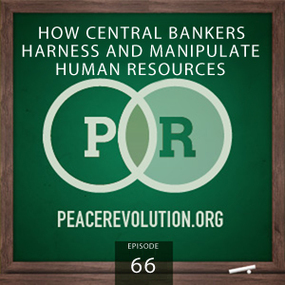Submitted by Tyler Durden on Zerohedge on 12/12/2012 09:05 -0500
http://www.zerohedge.com/news/2012-12-12/how-handful-unsupervised-mit-economists-run-world
Bank of England Bank of Japan Ben Bernanke Ben Bernanke Brazil Central Banks China European Central Bank Fail Germany Global Economy Gross Domestic Product India Japan LIBOR Mervyn King Mexico
Ever get the feeling that the entire global economy is one big experiment conducted by several former Keynesian economists from MIT with a bent for central planning, who sit down in conspiratorial dark rooms in tiny Swiss cities and bet it all on green until they double down so much nobody even pays attention to the game? No? You should. Jon Hilsenrath, of all people, explains why.
From the WSJ:
The same BIS, incidentally, which is an employer of "The People Bringing You Currency Manipulation On A Daily Basis" whom we described in April.
It is also the place where the coordination of all the real trading these days: that conducted by central planners of course. Most importantly, it is responsible for perpetuating the status quo.
As for our unsung MIT heroes...
The punchline: a handful of people from MIT, deeply steeped in economic theory (not practice), the same people whose actions incidentally were responsible for the first great financial crisis, and who yield more power than any potenate in the history of the world - people who, as the ECB showed in the case of Berlusconi, can take down presidents and PMs with the flick of a switch, meet in private. No transcripts or buttlers are allowed.
In other words, they are accountable to absolutely nobody.
Which is to be expected: after all they are conducting the greatest experiment in monetary, geopolitical and social history. If they fail... when they fail, everyone loses.
Every two months, more than a dozen bankers meet here on Sunday evenings to talk and dine on the 18th floor of a cylindrical building looking out on the Rhine.
The dinner discussions on money and economics are more than academic. At the table are the chiefs of the world's biggest central banks, representing countries that annually produce more than $51 trillion of gross domestic product, three-quarters of the world's economic output.
Of late, these secret talks have focused on global economic troubles and the aggressive measures by central banks to manage their national economies. Since 2007, central banks have flooded the world financial system with more than $11 trillion. Faced with weak recoveries and Europe's churning economic problems, the effort has accelerated. The biggest central banks plan to pump billions more into government bonds, mortgages and business loans.
Their monetary strategy isn't found in standard textbooks. The central bankers are, in effect, conducting a high-stakes experiment, drawing in part on academic work by some of the men who studied and taught at the Massachusetts Institute of Technology in the 1970s and 1980s.
"Will history decide they did too little or too much? We don't know because it is still a work in progress," said Kenneth Rogoff, an economics professor at Harvard and co-author of a book, "This Time Is Different," examining financial crises over eight centuries. "They are taking risks because it is an experimental strategy."
Three of the world's most powerful central bankers launched their careers in a building known as "E52," home to the MIT economics department. Fed Chairman Ben Bernanke and ECB President Mario Draghi earned their Ph.D.s there in the late 1970s. Bank of England Governor Mervyn King taught briefly there in the 1980s, sharing an office with Mr. Bernanke.
Many economists emerged from MIT with a belief that government could help to smooth out economic downturns. Central banks play a particularly important role in this view, not only by setting interest rates but also by influencing public expectations through carefully worded statements.
While at MIT, the central bankers dreamed up mathematical models and discussed their ideas in seminar rooms and at cheap food joints in a rundown Boston-area neighborhood on the Charles River.
Over Sunday dinners in Basel, which often stretch to three hours, they now talk of pressing, real-world problems with authority. The meals are part of two-day meetings held six times a year at the BIS. Dinner guests include leaders of the Fed, ECB, Bank of England and Bank of Japan, as well as central bankers from India, China, Mexico, Brazil and a few other countries.
The role of the Bank for International Settlements has broadened since it was formed in 1930 to handle reparation payments imposed on Germany after World War I. In the 1970s, it became the center of discussions on bank capital rules. In the 1990s, it became the meeting place for central bankers to talk about the global economy.
The 18-member group, formally known as the Economic Consultative Committee, has only once issued a public statement: a two-line missive in September, promising to look for solutions in interbank lending markets, responding to allegations that some private banks had conspired to manipulate the Libor interest rate.
On Mondays after the dinner, the bankers join a larger group of central bankers at a large round table on a lower floor of the BIS building, which is shaped like a rook chess piece. Staff members sit nearby at desks decorated in white leather. ... The Bank of England's Mr. King leads the dinner discussions in a room decorated by the Swiss architectural firm Herzog & de Meuron, which designed the "Bird's Nest" stadium for the Beijing Olympics. The men have designated seats at a round table in a dining area scented by white orchids and framed by white walls, a black ceiling and panoramic views.
"It is a way in which people can talk completely privately," Mr. King said in an interview. "It is a big advantage if you have some feel for how central banks think about questions, what they're likely to do in the future if certain events were to occur."
Serious matters follow appetizers, wine and small talk, according to people familiar with the dinners. Mr. King typically asks his colleagues to talk about the outlook in their respective countries. Others ask follow-up questions. The gatherings yield no transcripts or minutes. No staff is allowed.





